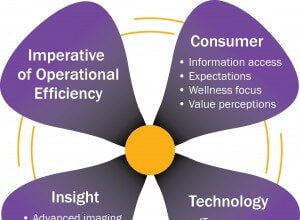By Amanda Glassman –
This is a joint post with Nandini Oomman and William Savedoff.
By Amanda Glassman –
This is a joint post with Nandini Oomman and William Savedoff.
Why is the World Health Organization (WHO) facing a financial crisis at a time when international support for global health issues has never been higher? The answer to this question cannot be found in any of the documents circulated for the 2011 World Health Assembly this week, but most observers cite three contributing factors: donors question the WHO’s performance, new organizations dedicated to specific issues have assumed responsibility for large parts of the global health agenda, and the WHO lacks a vision for its role and specific priorities within this new multi-faceted global health community.
The character of WHO’s current financial crisis reveals some of these problems. WHO’s 2010-2011 Program Budget is 10% lower than the previous year and unchanged in structure, with $700 million from core income and $2,896 million from specific contributions. These cuts come at a time when ODA for health has still been increasing – from around $10 billion in 2001 to over $26 billion in 2010. The WHO’s own assessment is that less than a quarter of its funding is “predictable and flexible.”
Contributors are pouring more money into global health initiatives (like GAVI and the Global Fund) and into extra-budgetary WHO activities, but not into WHO’s core budget. This leads us to conclude that WHO is not spending its core funds on donor priorities and/or that donors are questioning the effectiveness of WHO core activities.
In her speech to the World Health Assembly, Director-General Dr. Margaret Chan seemed to acknowledge this problem, saying “from the outset, it was evident that changes in the way WHO is financed depend, in the first instance, on greater clarity about the Organization’s role in a changing world.” And yet, moments later, she remarked, “we are having to cut back on some of our traditional areas of work, with deep regret, but we are most definitely not bankrupt.”
What seems to be missing is clear engagement between funders and WHO leadership on the organization’s appropriate role in a world that has changed massively since the organization was created in 1948 and given a mandate to promote “attainment by all people of the highest possible level of health.” Open discussion of what WHO should be and should not be doing is needed.
One sensible proposal can be found in a recent brief by Margaret Reeves at CSIS, suggesting that WHO focus on four areas of comparative advantage – (1) public health surveillance, pandemic preparedness, and emergency response; (2) standard setting and regulation; (3) catalyzing global partnerships; and (4) public health response to non-communicable disease.
By contrast, WHO’s Future of Financing document fails to clarify the organization’s priorities in any way. As if there were no crisis, the document describes WHO’s work program in five categories that effectively provide an umbrella for all of WHO’s ongoing activities (and departments): convening for better health; generating evidence on health trends and determinants; providing advice for health and development; coordinating health security; and strengthening health systems and institutions. The report’s major recommendations are to support a vaguely-defined reform process and to hold a “World Health Forum” meeting with global health agencies, civil society, and academia in order to strengthen WHO’s role in global health governance. The document does not indicate which activities will be scaled back. While acknowledging that the new global health landscape includes specialized agencies, WHO continues to insist on leadership in all things health.
Interestingly, the multilateral development banks (MDBs) demonstrate a relevant approach that more directly grapples with these disconnects between funding and priorities. Periodically, the World Bank and the regional development banks seek replenishments for their capital base or special funds. The negotiations for these replenishments create an opportunity to increase, align, and manage the MDB work programs with their contributors. This approach might be used to justify and guide WHO’s entire budget or, at a minimum, coordinate the extra-budgetary contributions to WHO.
For example, the World Bank’s International Development Association (IDA) is essentially an extra-budgetary program. It is funded largely by contributions from the governments of its richer member countries. These donors meet every three years to replenish IDA funds and review IDA’s policies. Donors meet regularly to review the progress of IDA at a mid-term review meeting. To increase openness and help ensure that IDA’s policies are responsive to country needs and circumstances, representatives of borrower countries from each IDA region take part in the replenishment negotiations since IDA13. In addition, since IDA13, background policy papers are publicly released, as well as drafts of the replenishment reports prior to their finalization.
The major global health financing mechanisms face similar periodic engagements with their contributors to demonstrate what they’ve accomplished, negotiate priorities, and make the case for more funding. For example, The Global Fund for AIDS, TB and Malaria (GFATM) uses a periodic replenishment model to manage voluntary contributions. The GFATM Board mobilizes resources through a periodic replenishment meeting, during which all public and private donors meet to review the operations and effectiveness of the Global Fund, consider its funding needs against its priorities, and use this information to make financial commitments for the next three years.
At the third replenishment meeting for the GFATM in 2010, donors pledged $11.7 billion dollars for the period 2011-2013, more than $1 billion short of the lowest resource scenario presented by the GFATM in the lead up to its replenishment. Reasons cited for this shortfall relate to the financial crisis, but also suggest a need for the GFATM to initiate a set of reforms around “efficient and strategic disbursement” of resources AND strengthening country capacity to use and “maximize the impact of Global Fund resources,” developed and implemented against clear timelines with deliverables. (See an earlier post for more on this topic.)
The current process of priority-setting and budget negotiation at WHO is broken. Replenishments at the MDBs suggest a plausible model for explicit engagement between the extra-budgetary donors and WHO management to put the organization on a new firmer footing.








